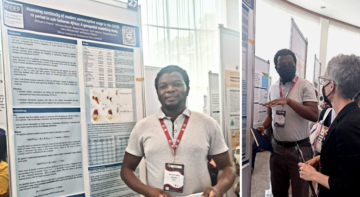News

The world is not on track to achieve any of the United Nations Sustainable Development Goals (SDGs) by the agreed date of 2030, warn an independent group of scientists appointed by the UN to assess SDG progress. In a Comment in Nature, Shirin Malekpour and Cameron Allen and colleagues call on scientists to support policymakers and others in rethinking humanity’s approach to achieving the SDGs. The authors highlight three priority areas for action: removing roadblocks to progress, finding feasible and cost-effective pathways to the goals and strengthening governance.
The 17 SDGs were established in 2015 as an urgent call to action by all countries to tackle global challenges such as poverty and inequality, climate change and environmental decline. The SDGs are broken down into individual targets, and the authors assessed a sample of 36 to get a snapshot of progress. Of those, only two are on track in 2023: access to mobile networks and Internet usage.
The authors write: “To break the logjam, scientists need to find out what is impeding system-wide changes in different places and sectors, and identify rapid ways to overturn those obstacles.” Researchers should provide evidence for effective policy pathways tailored to different sectors and nations. One obstacle is that most research so far has been done in high-income countries, and solutions that work there might not be suitable for low- and middle-income nations. Clean-energy transitions, for example, could falter owing to a lack of finances or supporting infrastructure.
More evidence is also needed for policy approaches that aim to achieve all SDGs simultaneously — rather than tackling them in isolation — while balancing trade-offs. For example, health and education investments improve economic productivity and lift people out of poverty, but can also increase consumption and environmental degradation. The authors highlight a positive example in Tanzania, where modelling shows that subsidies for solar electricity installations would support not only clean and affordable energy, but also better health (by reducing air pollution) and education (by allowing people to study for more hours of the day).
Finally, scientists need to develop criteria to assess the impact of various SDG governance processes — for example, whether linking national budgets to SDGs, as Mexico and Colombia have done, improves outcomes. Researchers should also provide insights to support stronger national accountability on SDGs.
The authors conclude: “Without accelerated action, the ambitious plan that the world signed up to in 2015 will fail. Scientists, institutions and funders must do their part to save the SDGs — and the planet and human society.”
This press release refers to a Nature Comment piece, not a Nature research paper or article. Comment pieces are topical, authoritative Op-Eds pertaining to scientific research and its ramifications.
This Comment is part of the Progress towards the Sustainable Development Goals Collection, which marks the mid-point of the 15-year period envisioned to achieve the Sustainable Development Goals (SDGs) by 2030. The Collection includes content published in journals across the Nature Portfolio, and highlights the progress made towards the SDGs.
**
Springer Nature is committed to boosting the visibility of the UN Sustainable Development Goals and relevant information and evidence published in our journals and books. The research described in this press release pertains to all 17 SDGs. More information can be found here.




